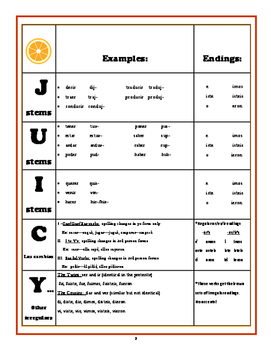
transponer - to move/transplant/transport.sobreponer - to superimpose/put before/overcome.interponer - interpose/lodge,file(legal).The verbs will follow this pattern: (yo - puse, tú - pusiste, él/ella/ud - puso, nosotros - pusimos, vosotros - pusisteis, ustedes/ellos - pusieron) The -poner verbs are like that of the “tener” verbs because “poner” is already a verb by itself. introducir- to bring in/introduce/insert.The - ducir ending changes to these endings in the preterite: (yo - duje, tú - dujiste, él/ella/ud - dujo, nosotros - dujimos, vosotros - dujisteis, ustedes/ellos - dujeron)


Out of all the verbs that contain the “-ducir” ending, they DO NOT conjugate according to the standard conjugation rules. aduve, anduviste, anduvo, anduvimos, anduvisteis,anduvieron)(Estuve, estuviste, estuvo, estuvimos, estuvisteis, estuvieron)

*Notice that these “-tener” verbs are all the “-tain” verbs in English.(Andar and Estar also follow the -uve, -uviste, -uvo, etc pattern: Ex. retener- to retain/hold prisoner/hold back.mantener: mantuve, mantuviste, mantuvo, etc. ( yo - tuve, tú - tuviste, él/ella/ud - tuvo, nosotros - tuvimos, vosotros - tuvistéis, ustedes/ellos - tuvieron) When you see verbs that contain “-tener” within the infinitive, you can bet that it will conjugate exactly like this but with the appropriate prefix.Įx. This post will exclude: dar, ser, ir, ver, saber, querer, poder. The goal of the post is for you to know what/when verbs will follow a certain pattern in the preterite based on their ending. Just the verbs/suffixes used below are the ones that will be used to make up different verbs. I’m JUST going to talk about the verbs that are used in conjunction with other prefixes to change the meaning. However, we’re going to take a look at some irregular verbs in the preterite that will help you to recognize right away which verbs will be conjugated differently from the norm and HOW they’ll be conjugated even if you have never seen the verb before. They technically follow their own pattern. There are some that just seem to have absolutely no rhyme or reason to them when conjugated in the preterite.


 0 kommentar(er)
0 kommentar(er)
